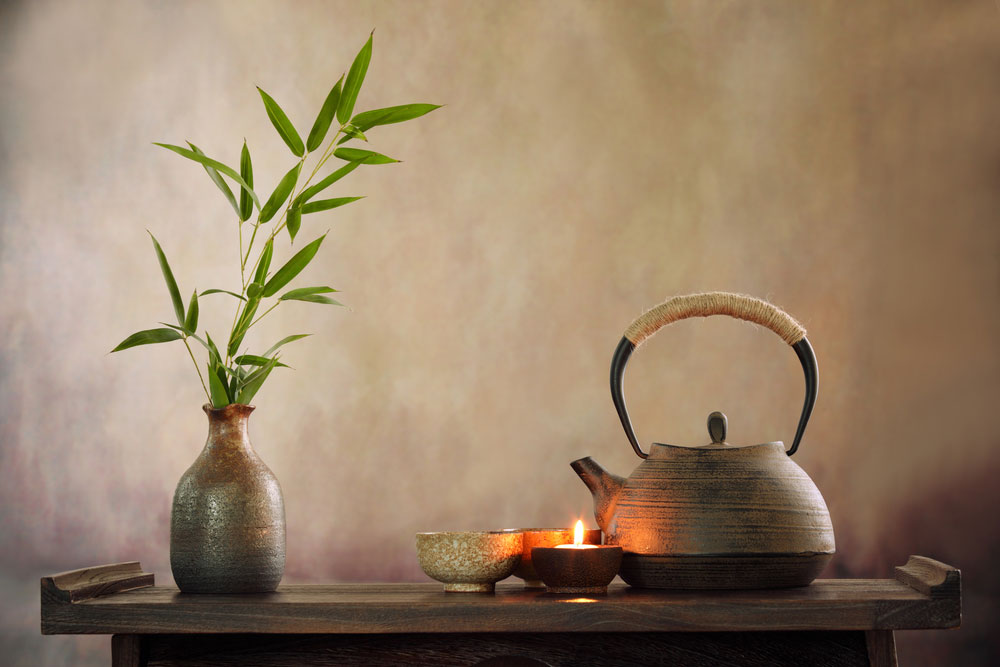According to legend, tea consumption began after the wind dropped some tree leaves into a mythical Chinese emperor’s pot of boiling drinking water in 2737 BC. Hundreds of years later, during the height of the Chinese Empire (600 – 900), tea drinking had become an art form in China.
In the 9th century, Japanese monks brought tea to Japan upon visiting China. In 15th century Japan, it had developed into an ethical practice marked by tea ceremonies.
Japanese art, cuisine, homes and work were influenced by its morality. As Okakura Kakuzo wrote in The Book of Tea, a cup of tea, which “shows comfort in simplicity”, was (and still is) considered “hygiene for it enforces cleanliness”. He also stresses on the spiritual nature of theism, which “defines our sense of proportion to the universe” and “invocates purity, harmony and mutual charity”.
By the 17th century, tea had become a staple drink in many countries around the world.
Today, it is the second most consumed beverage after water, with an average of three billion cups of tea consumed a day.
Dried, infused and drank differently from one continent to the other, the manner in which tea is consumed depends on the type of tea as well as people’s culture and tastes.
Teas and infusions can be rich in vitamins A, B, C, E, and K, as well as oligo elements, minerals, and antioxidants. They can fortify the immune system and help reduce infections, detoxify the body, and prevent sickness and disease.
Moreover, drinking infusions has been shown to help in clear congestion, facilitate digestion, and improve blood circulation and bowel activity. It also helps the body to rejuvenate, promotes healthier skin, and (when used as a compress) reduces eye puffiness and dark circles.
Consumed on regular basis, tea and its derivatives can promote heart health and help fight against certain types of cancer, cholesterol, colds, anxiety, insomnia, and a number of other ailments.
Each herb has a time to be enjoyed, tells its own story, and offers multiple benefits. To enjoy these benefits in full, it is best to consume it without added sugar or milk. Of course, it should also not be altered by artificial flavourings or polluted by insecticides or man-made chemicals of any kind. The cleaner the tea, the cleaner our system and the clearer our thoughts.
Doing a bit of research on the benefits of every type of tea or herb adds awareness to the drinking process, enlarges the scope of healthy, wealthy and enlightened beings, and brings forth gratitude for each simple, yet highly enjoyable, gift of each sip of tea.
As John Blofeld, specialist in oriental religions, put it; “Being a man or woman of tea is being the medicine to one’s own soul.”
Be it herbal, white, black, green or red, it is all written in your tea leaves! Enjoy it!

